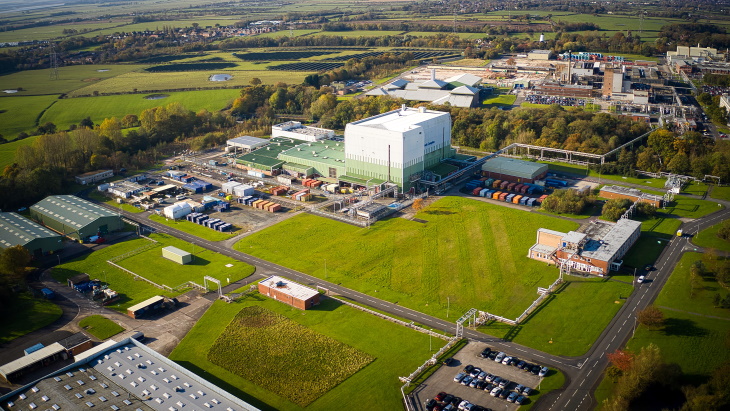
The grants are aimed at "future-proofing" the UK nuclear fuel industry by developing more variants of light water reactor fuels, including for the AP1000 reactor and the AP300 small modular reactor (SMR). The funding also supports potential production of high-assay low-enriched uranium (HALEU) fuels for the country's new advanced reactors.
In addition, Westinghouse will partner with Terrestrial Energy and the National Nuclear Laboratory to pilot supply of enriched uranium tetrafluoride (UF4) and molten salt fuel for use in Terrestrial's Integral Molten Salt Reactor.
"This investment from the Nuclear Fuel Fund is a vote of confidence in the capabilities of our Springfields manufacturing site," said Tarik Choho, Westinghouse President of Nuclear Fuel. "We are excited for the future of nuclear energy in the UK and the role Westinghouse will continue to play in its success."
"Nuclear power is at the heart of our plan to deliver cleaner, more secure home-grown energy to the UK, boosting our energy security and will provide highly skilled jobs to grow our economy," said UK Minister for Nuclear Andrew Bowie. "The GBP10.5 million government funding to Westinghouse's Springfields plant will support their development of new fuel technologies, essential to the development of the next generation of nuclear reactors, as well as supporting highly skilled jobs in Preston and across the North West."
Following consultation with the industry, barriers to investment in the UK nuclear fuel sector were identified, including: the high upfront costs of establishing new facilities and product lines; uncertainties regarding the long-term makeup of future fuel demand, particularly with regard to the emergence of advanced reactor technologies; costs and timelines associated with siting and licensing of new nuclear fuel facilities and products and a shortage of nuclear and engineering skills.
In January, the UK government began accepting bids for up to GBP50 million (USD60 million) funding for projects it hopes will "stimulate a diverse and resilient nuclear fuel market" in the country. Bids were accepted up to 20 February. The Nuclear Fuel Fund is intended to provide greater options for UK nuclear operators to use UK-produced fuel, as the country seeks to diversify its uranium and nuclear fuel production capacity away from Russia.
The fund is also intended to "support projects establishing new domestic fuel capabilities, which could include fuel supply options for light water reactors, including future small modular reactors, that could support much of our current nuclear energy needs. It will also look to support projects producing new fuel types which will be needed to supply advanced modular reactors, likely to be in operation from the 2030s, such as high assay low enriched uranium".
So far, GBP22.3 million has been offered to eight projects.
In December 2022, GBP13 million of government funding was allocated to Westinghouse to help "prepare the necessary design and enabling work to begin new conversion capabilities for the world's utilities from 2028" at the Springfields site. The idea is that the facility would provide both reprocessed and naturally occurring uranium conversion services to utilities around the world.
Westinghouse was also awarded a grant by the UK government in October last year to complete a Pre-Front End Engineering Design study, in collaboration with Urenco, for the production of tristructural isotropic (TRISO) fuels at its Springfields facility.